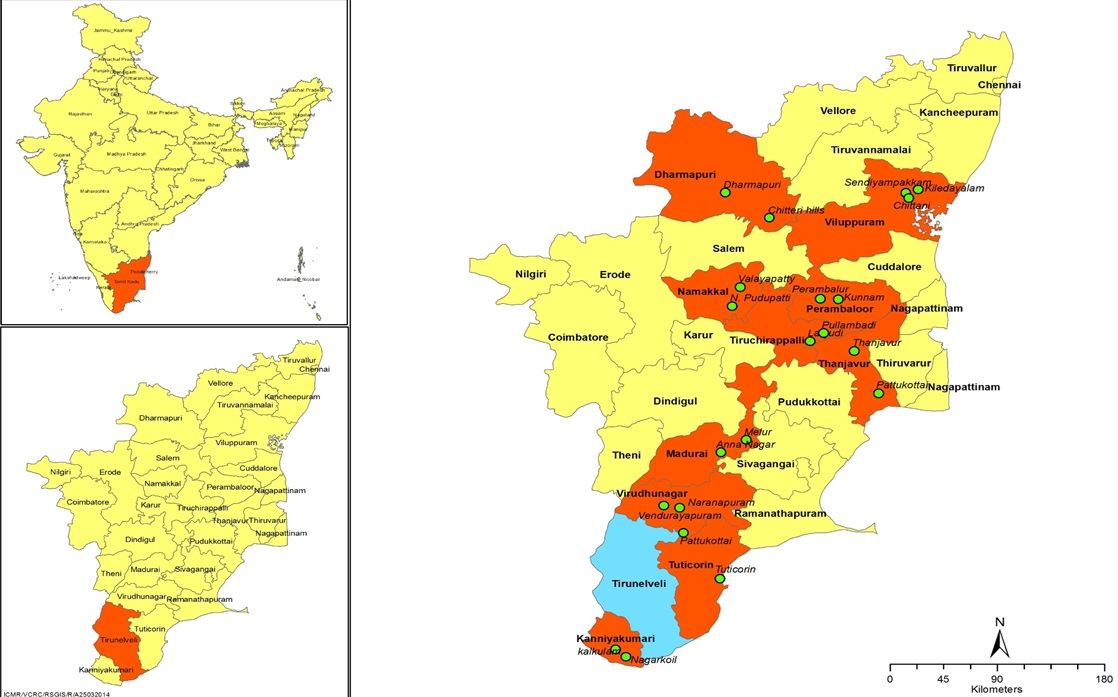Journal of Entomology and Zoology Studies
Volume 2, Issue 6
Entomological surveillance of dengue vectors in Tamil Nadu, India.
Author(s): Mohd. Ayoub Bhat, K. Krishnamoorthy, Anisa B. Khan
Abstract: Dengue infection is most important rapidly growing arboviral disease of public health concern. On the basis of repeatedly occurrence of dengue outbreaks in India, wide and extensive (covering large areas) entomological surveillance was conducted in different districts of Tamil Nadu to detect the dengue prevalence and transmission by analysing the major breeding sources and abundance of Aedes mosquitoes. The entomological survey data was analysed in terms of various larval indices. The survey of adult female mosquitoes has also been carried out to assess its entomological Importance. The larval indices analysed included HI, CI, BI, and PI which varied from 2.50 – 18.26, 0.83 – 9.03, 5.00– 31.71 and 0.00 – 46.15 respectively. The Pupae Per Container and Pupae Per Positive Container varied from 0.00 – 0.33 and 0.00 – 5.50 respectively. The Container Positivity varied from 25.93 (Earthen Pots) –0.46 (Plastic Buckets). The Adult Premise Index showed variation from 1.82 – 18.26. Whereas Females Per House inspected varied from 0.07-0.33 and Females Per Positive House (for Aedes mosquitoes) showed variation from 1.00 – 13.00. The Aedes aegypti followed by Aedes vittatus and Aedes albopictus were abundantly reported. It can be concluded that due to the availability of various breeding sources, Aedes larval and adult stages were detected throughout study areas of Tamil Nadu and thus, there are the chances of occurrence of dengue fever infections. The various organisations of vector control should take the necessary steps to educate the people of study areas. The people should be informed about the practices of source reduction in order to reduce the chances of dengue outbreaks.

Fig: Map showing study areas
Download Full Article: Click Here
Advertisement:


